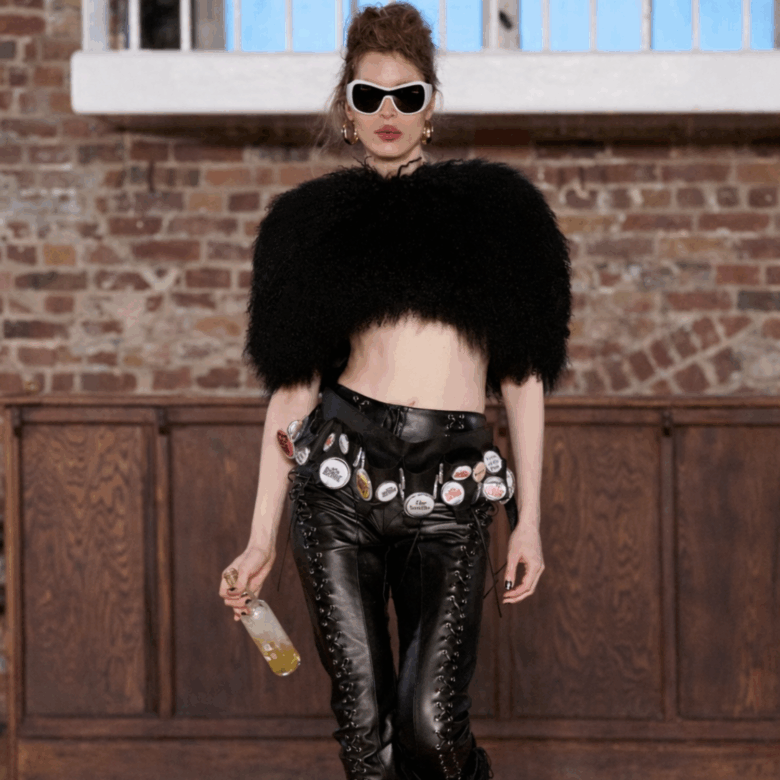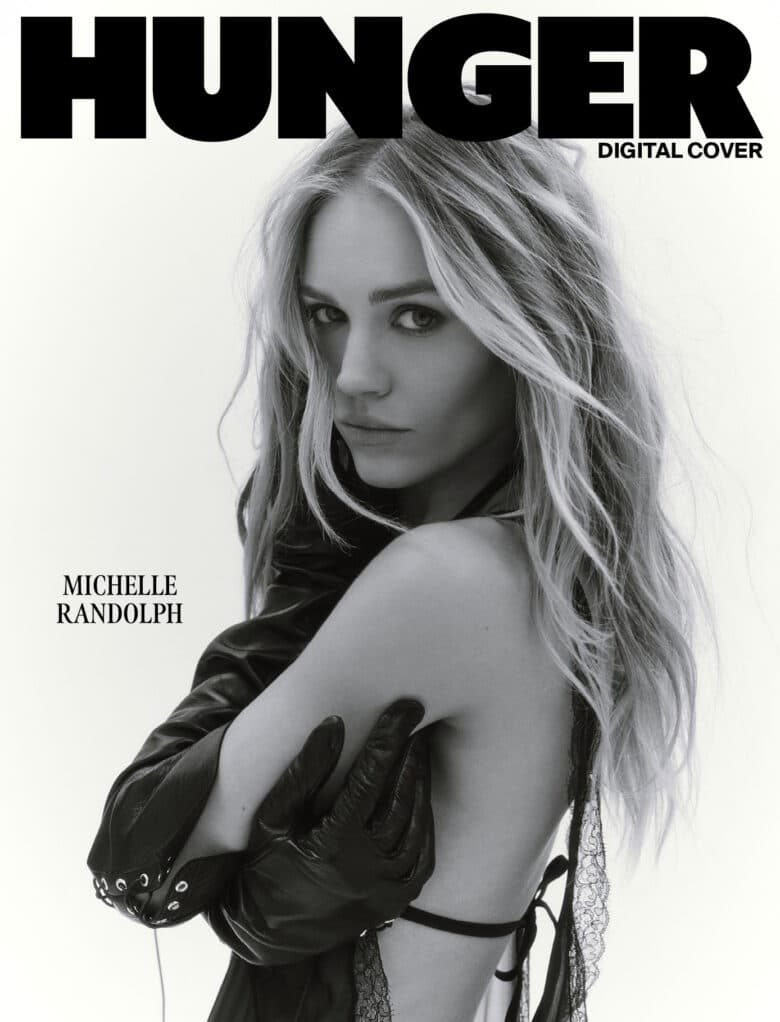Jack Dylan Grazer on working with Luca Guadagnino, figuring out who he really is, and the challenges of growing up online

“I was a rascal,” Jack Dylan Grazer says with his distinguishable vocal twang that instantly transports you back to his previous roles. The actor is at his home in the Palisades, Los Angeles, surprisingly prompt for an 18-year-old at 10am. His baggy jumper takes up most of the screen and every now and then his audio is cut off by his oversized sleeves muffling his phone’s microphone. But still, you can read what Grazer’s saying just from his theatrical facial expressions, his eyes widening every time a new topic of conversation is thrown into the mix. It may be morning, but he’s very much awake and raring to go.
Grazer is halfway through a whirlwind account of what he was like as a kid, rallying through introductory questions about his formative years, which of course, he’s still living through. He says everything with vivacity and passion, telling me how he could talk about food spots in LA for hours. And while many people would love to know what tickles his tastebuds, I have just over an hour with him and we can’t stick to just a culinary conversation.
“I was a tough kid to raise,” Grazer reflects. “I was just unnecessarily difficult. In elementary school, I was in trouble all the time. I have ADHD and I couldn’t focus. I would say weird shit that I’d [hear] in movies and I’d bring it to school and get in trouble.” Later in our conversation he explains how he was always saying precocious things for effect, just to see the reaction from adults who were shocked that he knew about certain ideas and words way before other kids his age did.

In many ways, it was Grazer’s unpredictable behaviour as a child that introduced the actor to the world – after he landed his first big-time role in Andrés Muschietti’s 2017 adaptation of Stephen King’s It. Grazer pretty much plays himself, alongside co-stars like Stranger Things poster boy Finn Wolfhard, Sophia Lillis and of course Bill Skarsgård, who plays It. Grazer describes the whole filming experience as like being at summer camp, just with the occasional scare from a salivating circus monster.
“We were just pretending to be scared of a clown,” he jokes. “There were moments when it would get real and I’d look into Bill [Skarsgård]’s eyes, when he would have his contacts and his teeth in – that dude is so transformative. Before a take, everybody gets really quiet and he’ll gather all this rage and look around for people and scare them.” Terrifying clown noises ensue.
The on-screen and off-screen friendship and camaraderie was built for Grazer. In It, the group of young teens are social outcasts, constantly deemed to be losers and united by their roles as pariahs of popularity. Coming from school, It was where Grazer found a group of friends after feeling like acting was the only place he could express himself fully. And soon afterwards Grazer swapped his regular school for musical theatre school, where he was scouted by a talent manager during a performance of Anything Goes, and his road to blockbuster roles began.

He next landed on our screens in We Are Who We Are, looking solemn, moping around an Italian military base with blond hair – fashionable but with no friends and an interest in a close-knit group of teens, Jordan Kristine Seamón’s character Caitlin in particular. The miniseries, which immediately garnered anticipation because of its director, Luca Guadagnino (Call Me by Your Name), took what we knew about Grazer and morphed him into an actor of distinction. This time he wasn’t running from a clown and making jokes about hypochondria, he had to reconfigure his mind and slip into the skin of a 14-year-old caught between fleeting ideas of identity, love and friendship, and encapsulate the inescapable mental torment of teenage years. The real acting didn’t lie in Grazer’s knack for humour and entertainment, instead it was found in the silence of his character, in the nuances of social anxiety, solipsism and what it means to be an introvert.
“When I did We Are Who We Are, I had to be like, ‘OK, I have to pay attention.’ Fraser [his character] barely spoke. A lot of the depth comes from being super-quiet and very thoughtful,” Grazer says. “While I was figuring out who I was, my own beliefs and what I liked, Fraser was too. So we became one and I surrendered completely to the character. I don’t even know if I related with him, but I found so much comfort in being the uncomfortable, vulnerable Fraser, and that felt more normal to me.”
While there was a need for Grazer to up his game for the role, there are aspects of the character that, just like his part in It, magnetised the actor with his non-fiction persona. Both Grazer and Fraser’s struggles with their identity coincided with one another, so much so that his character started to bleed into the person.

“I think that in the future there will be a part for me where I will go very deep again, but I’ve done lots of things since then and I can turn it on and off,” he says. “But when I would go home while playing Fraser, I would look at myself in the mirror and be like, ‘That’s not Jack because Jack doesn’t have blond hair.’ The hair was a big thing for me. I couldn’t recognise myself. I would look at myself in the mirror and see this character… It was torturous but also extremely enlightening, and I’m really grateful for that experience.”
And then came the DC action/adventure superhero flick Shazam!, where Grazer plays the sidekick of the film’s protagonist. But you wonder if even a role as light-hearted as this plays a part in impacting on who you think you are as a person, and whether Grazer growing up alongside his characters has meant that traces of them have been left behind in his identity.
It’s a given that mostly all teenagers (and adults, for that matter) battle with similar issues, throwing around ideas of who they want to be and why. However not all people go through that stage of their life while also trying to navigate their identity in the sightline of the public eye. But Grazer did, and still is, which at times has been detrimental.

Grazer isn’t always spoken about online in a positive way. When he was 14 a video surfaced of him smoking weed; calls to cancel him resulted in an apology video from the baby-faced actor. But what is more serious is the backlash Grazer has received on TikTok and Twitter amid accusations of alleged assault and infidelity, as well as a video of him using a racist slur. Tweet after tweet, video after video has followed – it’s a mixture of fans expressing their love for Grazer and others pushing for his cancellation.
“I started saying dumb stuff on livestreams when I was, like, 13 years old,” he admits about his online activity. “I would make a messed-up joke, maybe a joke that would offend somebody. And obviously I wasn’t trying to be malicious. I was on livestreams with my friends and you’d say dumb stuff that would probably get me in trouble today.”
But how does a celebrity move past mistakes made online? Is it even possible to brush away your public digital footprint by promising growth? Maybe it’s one of the dangers of young celebs having access to social media; there’s no room to make mistakes, unlike for the rest of us. While Grazer will keep acting and posting online, there may always be an effort from a number of people to hold his career back by making sure these videos aren’t forgotten. However, for Grazer, it appears to be lessons learnt, not a career lost.

If what audiences want is to see growth in a celebrity’s career, then that is what they will find at the heart of Jack Dylan Grazer’s acting – it’s his ability to embrace vulnerability and his power to blur the lines between himself and his characters. There’s real, justified potential within him, which could be undone if he doesn’t learn from what he regrets doing online.
The Grazer in front of me is incredibly likeable and is keen to grow; he’s a young man who is truly finding himself and starting to feel comfortable with his identity – pulling off glittery make-up looks on Instagram and opening up about his bisexuality via livestreams. Maybe Grazer is ready to use social media infamy to help others be seen instead.
This feature comes from HUNGER 25, the celebrity issue — purchase here.

